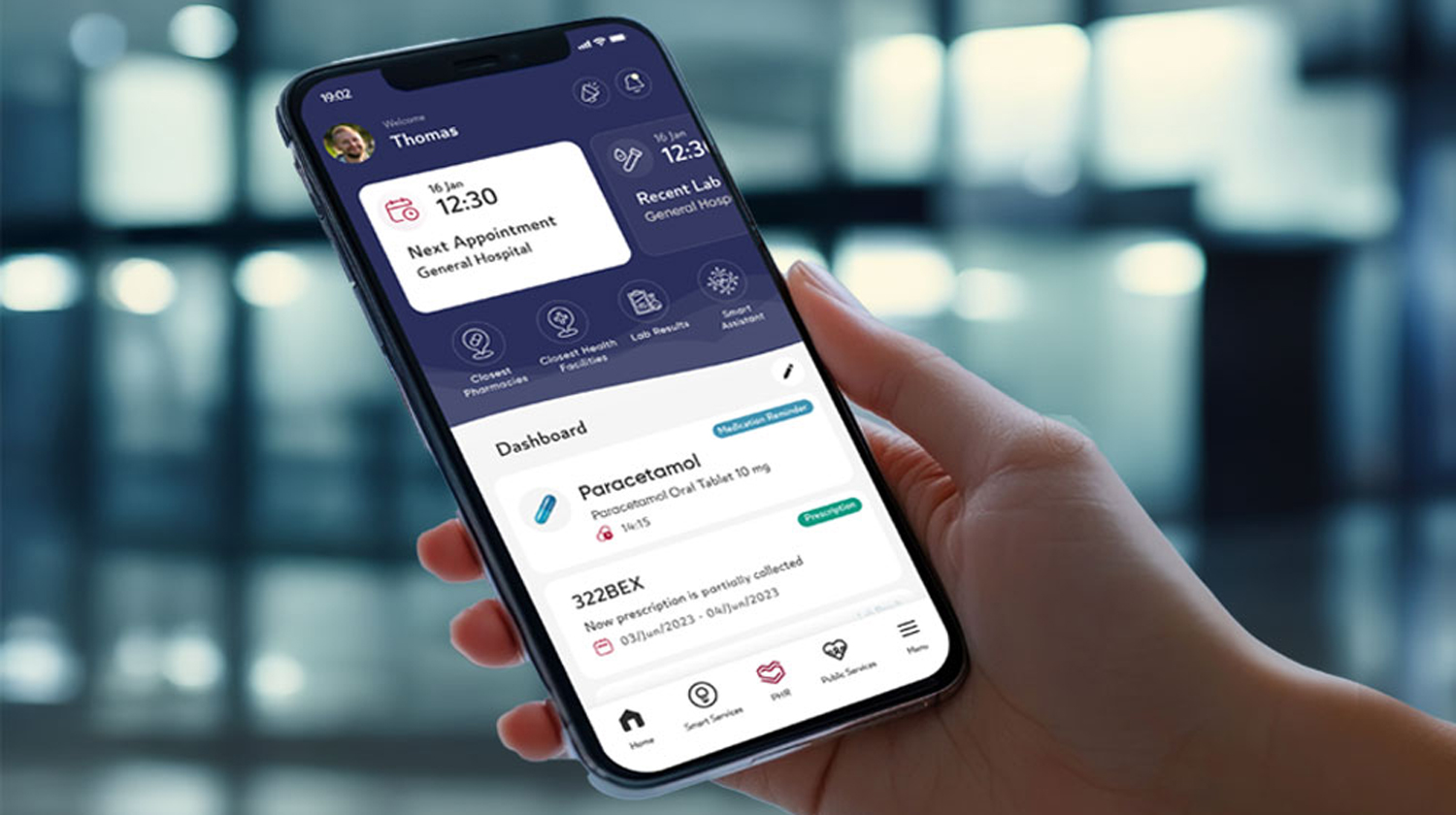
Blog
Why Is Patient-Centricity Important in Healthcare?
Patient-centricity in healthcare signifies a paradigm shift from provider-dominated healthcare to a model that empowers patients. By focusing on patient needs, preferences and values, patient-centric care reinforces decision-making, transparency, open communication and personalized treatments, ultimately enhancing healthcare outcomes and patient satisfaction through increased engagement. Here's proof from the World Health Organization (WHO): successful patient engagement can lead to a 15% decrease in the burden of healthcare harm, saving many lives and billions of dollars!
Consequently, the healthcare industry has increasingly adopted a patient-centric approach due to the growing demand for personalized services and the rise of digital health products that enable better engagement. Studies show that patient-centered care directs higher treatment adherence and better healthcare outcomes, particularly for chronic conditions like diabetes and hypertension. So, how can healthcare providers and professionals meet this patient-centric demand for customized digital tools and systems?
At Tiga Healthcare Technologies, we're at the forefront of enabling patient-centric care through our innovative systems, particularly with the Patient Engagement product family. By pioneering advanced healthcare technologies, we continue to drive personalized care and help healthcare providers, public health authorities and decision-makers across the globe focus towards a more patient-centered approach. It's time to explore patient-centricity in healthcare in-depth with a specific focus on our products.

Shifting Paradigm: From Provider-Centric to Patient-Centric Care
For decades, healthcare systems operated under a provider-centric model, where decisions were primarily driven by healthcare professionals and facilities, with little patient input. This approach often led to standardized treatments that only partially accounted for individual patient preferences, needs or circumstances. The focus was primarily on the efficiency of care delivery with fragmented cases rather than the holistic experience of the patient.
In recent years, there has been a significant shift towards personalized care within a systematic approach, backed by the rise of digital health technologies and growing patient empowerment. Patients today are more informed and proactive, demanding care that aligns with their preferences and values. Accordingly, countries have widely adopted patient rights charters to empower patients. As the WHO survey indicates, approximately 70% of surveyed countries are developing or legislating such charters.
Rapid technological advancements have empowered patients, making them more knowledgeable and proactive in managing their health. The traditional approach is no longer sufficient. To thrive in today's competitive landscape, healthcare providers must adopt patient-centric strategies for the management and support of personalized treatments and quality experiences. Fortunately, technological developments such as telemedicine, wearables and mobile apps have enabled these strategies to be implemented with opportunities like real-time monitoring and treatment adjustments tailored to the individual, contributing to a more personalized and engaged healthcare experience.

Key Benefits of Patient-Centric Care
Healthcare providers that fail to adopt and implement a patient-centric approach will struggle to survive in today’s evolving healthcare IT sector. Thankfully, the digital revolution is making shifting from ‘one-size-fits-all’ care easier to personalized solutions driven by patient data and preferences. Today and in the years ahead, institutions that genuinely understand and rapidly respond to patient needs will have a significant competitive advantage. Thus, it is essential for healthcare providers to fully grasp the concept of patient-centricity and ensure both their staff and patients increase their awareness of its importance.
To enhance health outcomes while reducing costs, integrating a patient-centric approach across every part of the organization is key. This involves actively gathering patient feedback, educating both patients and employees and continuously refining processes to meet individual patient needs. Let's take a closer look at what patients can gain.
Improved Patient Outcomes
Improved patient outcomes are a direct result of adopting patient-centric care models that prioritize personalized treatment. This way, patient-centered care has an immense potential to reduce hospital readmissions and improve recovery times. By utilizing tools like e-Appointment systems, which enable convenient scheduling of appointments and consultations and telehealth platforms, which provide remote access to physicians, patients experience quicker intervention and more efficient treatment.
Additionally, patient-centric care enhances treatment observation, a key factor in achieving positive outcomes. Actively engaged patients in their healthcare are more likely to follow treatment plans and attend follow-up visits. This not only leads to better health outcomes but also minimizes the progression of chronic conditions due to earlier and more frequent medical interactions.

Enhanced Patient Experience and Satisfaction
Healthcare services designed by considering the patient's priorities, needs and treatment path will increase both patient adherence and engagement. Treating patients as active participants in their care is crucial to enhancing their experience and satisfaction. When patients are involved in decision-making and their input is valued, they feel empowered and more invested in their health. This collaborative approach builds stronger relationships between patients and providers, fostering a sense of trust and respect.
This engagement also positively impacts communication and the overall healthcare journey. Open dialogue between patients and healthcare professionals leads to more explicit expectations, a better understanding of treatment plans and fewer misunderstandings. By involving patients in their care, healthcare systems ensure better satisfaction, loyalty and long-term health outcomes.
Better Health Literacy and Empowerment
Informing and educating patients about their conditions is key to empowering better health literacy. When patients understand their diagnoses, treatment options and potential outcomes, they are more confident in managing their health and collaborating with healthcare providers. Higher health literacy results in strict following of treatment plans and engaging in preventive care, leading to improved health outcomes and reduced healthcare facility visits.
The rise of digital tools and platforms has made it easier to improve health literacy and patient involvement. Mobile health apps and online portals provide patients with access to personalized health information, treatment reminders and real-time communication with healthcare professionals. These platforms not only educate but also empower patients to engage in healthier behaviors and make better decisions about their lifestyles.
Given Tiga's focus on patient-centric care, what products, solutions and technologies are we developing to deliver on this promise? Let's unpack our role in this process.

Tiga’s Role: Our Comprehensive Patient Engagement Products
Tiga is pioneering a new era of patient care. By placing the patient at the heart of the healthcare journey, we are transforming the way care is delivered. Our innovative digital healthcare products empower healthcare providers, professionals and patients to connect seamlessly, creating a collaborative partnership that drives better health outcomes. By streamlining communication and simplifying access to care, we are improving patient satisfaction and enhancing overall well-being. This way, we also boost empathy, trust and understanding.
Our Patient Engagement product family actively involves patients in decision-making regarding their illnesses, medications and treatment options. Tiga systems inform patients by accurately providing their Electronic Health Records (EHR) and a wide range of critical health information, such as medical history, laboratory results, reports, radiological images, prescriptions and medications, drug reminders, past hospital visits, upcoming hospital appointments, vaccination status, pandemic information, nearest hospitals, emergency situations and much more. This ensures that all care decisions are based on up-to-date, comprehensive data, shared continuously with patients.
Moreover, our approach to patient engagement promotes a true partnership between patients, their families, healthcare providers and a broader network of stakeholders, including Ministries of Health, regulators and healthcare systems. By bringing all parties together, we create a coordinated care environment where patient needs and preferences are prioritized, leading to better health outcomes and a more personalized healthcare experience. Now, let's look at our related products one by one.

Personal Health Record (PHR) System
Personal Health Record (PHR) System is an excellent platform for managing electronic health records (EHR) and making them accessible to all citizens and patients in a country. With 24/7 secure access, this platform increases patient engagement significantly. This secure platform consolidates data from various sources, including medical histories, prescriptions, lab results, radiological images and vaccination records. Patients can also grant specific access permissions to their records, encouraging collaboration between healthcare professionals and patients.
PHR extends beyond basic EHR management, offering a suite of innovative features, such as drug reminders, a cardiovascular disease risk assessment tool and a smart assistant to guide users through their health journey. Additionally, PHR facilitates blood and organ donations, promoting community health and saving lives.
As a result of this innovation, the Turkish National PHR system developed by Tiga has successfully processed over 10 billion health records for more than 76 million users and 125 million patients to date. This system, integrated with more than 30 different national health information systems and serving as the backbone of the Turkish National Health System, receives EHR data from over 218,000 doctors across more than 28,000 healthcare facilities.

e-Appointment
Our e-Appointment System simplifies the healthcare process by making it easier for patients to engage with their care by scheduling and managing appointments digitally. This system enhances patient access to healthcare services by allowing quick and convenient scheduling, reducing waiting times and improving overall patient satisfaction. By digitizing appointment management, patients can easily book, reschedule or cancel appointments, ensuring a more seamless experience from start to finish.
The e-Appointment System makes it easy for patients to book appointments online with hospitals, oral and dental centers and family physicians. Patients receive reminders via SMS or email, helping them stay informed about their upcoming appointments. Whether for in-person appointments or remote (telehealth) consultations, patients quickly schedule their appointments through mobile apps, websites or by phone, ensuring secure access to healthcare.
For healthcare authorities, the system provides robust management tools, enabling real-time tracking of appointment trends and optimizing resource allocation at the regional, facility and national levels. This oversight allows for better planning and ensures that staffing, equipment and clinic capacity are allocated effectively to meet patient demand. Healthcare professionals and providers also benefit from having access to detailed appointment data, enabling them to make more informed decisions, refine scheduling practices and improve the overall efficiency of healthcare delivery.

e-Referral
Our e-Referral System seamlessly connects physicians and healthcare facilities to transfer patient referrals for special opinions or needs quickly. Its adaptable, end-to-end structure transforms referral procedures in various healthcare facilities from primary care to large-scale hospitals with extensive outpatient and inpatient services.
By prioritizing patient safety and expedited service, this system alleviates the strain on healthcare resources. Through end-to-end coordination and a flexible structure, e-Referral enhances patient care quality by ensuring timely and efficient access to specialized care.
Using common digital channels like emails, SMS and mobile apps, e-Referral facilitates transparent and efficient information exchange. This innovation streamlines the referral process, enhancing accessibility and responsiveness, which leads to a significant boost in patient satisfaction.

Mobithera - Remote Physiotherapy & Ergotherapy App
Mobithera - Remote Physiotherapy & Ergotherapy App is a pioneering AI-based health solution that transforms therapeutic interventions in physiotherapy and ergotherapy. This interactive platform allows patients to perform therapeutic exercises via smartphones and tablets, offering protective and curative health measures from their homes. This way, Mobithera redefines accessibility and convenience in therapy with AI.
The app empowers patients with personalized care, real-time guidance and continuous engagement. With features like progress tracking and effective communication, it supports data-driven clinical decisions, making therapy not only flexible and cost-effective but also more engaging. It's customizable for each patient's unique needs, adapting to their schedule, lifestyle and physical abilities.
Mobithera enhances the therapy experience with easy-to-follow video instructions, ensuring correct form and technique for each exercise. Its AI-based system analyzes user movements, providing instant feedback and helping prevent injury. By making exercises fun and personalized, Mobithera increases patient motivation, leading to better adherence and more successful outcomes in physiotherapy and ergotherapy.

In essence, placing patients at the center of care is crucial for improving healthcare outcomes, enhancing patient satisfaction and building trust in the system. By focusing on individualized needs and experiences, healthcare becomes more responsive, effective and supportive.
Healthcare professionals, policymakers and regulatory authorities must collaborate to further this transformation. Each has roles and responsibilities in creating systems that prioritize patient well-being, integrate innovative solutions and ensure equitable access to care.
The journey toward a truly patient-centric healthcare system requires continued dedication, innovation and cooperation, as we exemplify. At Tiga, we recognize this trend and are committed to working tirelessly to drive progress and ensure that no patient is left behind in healthcare. Together, we are transforming challenges into opportunities and making a lasting impact on the health of communities with patient-centricity.
Let's continue to shape the future together, where every patient receives personalized, high-quality care!









